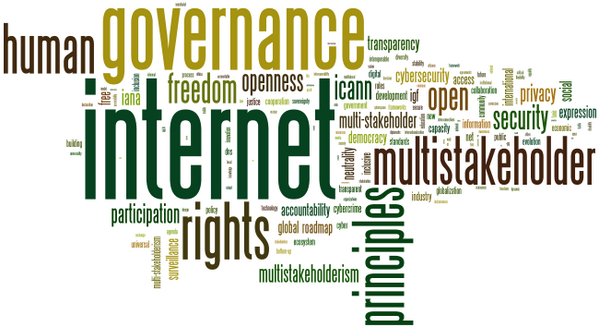
The United States, China and Russia have so far been the key players in the Internet governance debate. As we showed last week, while the multi-stakeholder and statist schools of thought have shaped the discussion, neither has gained a decisive upper-hand. It’s becoming increasingly clear that the future of Internet governance won’t be decided by the stalwarts of those opposing sides, but by the actors who occupy the middle ground. With an international consensus unlikely, it’ll be the building of like-minded coalitions that shifts the balance towards either end of the Internet governance spectrum. This week, we look to NETmundial in Brazil as the next big Internet governance forum where the positions taken by pivotal actors may determine how the debate progresses, and how our day-to-day Internet experiences might change.
NETmundial’s origins are inextricably bound to Edward Snowden’s disclosure of America’s NSA surveillance activities. At the UN General Assembly in September 2013, Brazilian President Dilma Rousseff spoke strongly against the US and called for the UN to become involved in Internet governance. Two weeks later, ICANN CEO Fadi Chehadé was in Brazil recognising that ‘trust in the global Internet has been punctured’, and that it was now ‘time to restore this trust through leadership and through institutions that can make that happen’. Rousseff accepted Chehadé’s invitation to host a global summit on multi-stakeholder Internet governance, and NETmundial was born. Brazil’s joy was short-lived; the US announcement that it was shifting the last of its internet management responsibilities to ICANN muted the significance of NETmundial and empowered ICANN as the premier forum for the debate. Nonetheless, NETmundial will be an important proving ground for ideas that’ll be taken to future ICANN meetings, so it’s useful to explore the positions of Brazil, India and the EU—all pivotal actors who can shape the debate.
Brazil has been a peculiar actor in the debate so far. Historically, it has supported a more intergovernmental model of Internet governance, deferring to the UN and ITU as the decision-making bodies. So it was interesting that President Rousseff, while requesting UN intervention, also made clear overtures to multi-stakeholderism, calling for ‘open, multilateral and democratic governance, carried out with transparency by stimulating collective creativity and the participation of society, governments and the private sector’. Brazil will be riding into NETmundial on the back of its recent success pushing through the Marco Civil da Internet –a civil rights framework for Brazilian Internet users–and as more recently reported, its designs for global internet governance rules (to be released on 14 April). As a growing economic power and leader in the developing world, Brazil will do much to shape the future of the Internet governance debate.
India’s Internet governance debate, like Brazil’s, is in flux. For a time, India demonstrated that it was an inclusive, balanced actor committed to a free and open internet governed through multi-stakeholder processes. Then, in November 2013, they threw their support behind the multilateral Internet governance model after concerns about data storage and internet traffic management in a post-Snowden world. India highlighted its distaste for the multi-stakeholder process, characterising it as ‘something of a misnomer’ given US dominance in the system. The Indian government has since emerged as a reactionary in the Internet governance debate, attempting to elbow its way into a seat at the table. Itself a beneficiary of an open Internet, India should be encouraged to consider carefully the representations it’ll make at NETmundial as part of a long-term game, not a short-term one.
While the European community has been a strong proponent of an inclusive, bottom-up system, the US legacy role has remained a long-standing point of contention. After the Snowden revelations, European leaders lambasted the US and tabled policies that hinted at Internet Balkanisation, appeasing both sides of the debate, as well as domestic business interests. Fortunately America’s recent moves have largely placated its Europeanpartners. The European community is large and diverse, providing a solid foundation upon which to build a global consensus on Internet governance. But the transatlantic relationship brings its own baggage, limiting the North Atlantic’s potential to function as an incubator for internationally acceptable norms. Europe offers an important critical mass, but not one nearly large enough to solidify Internet governance norms and rules of the road.
The Snowden revelations caused Brazil, India, the EU and others to lose faith in America’s goodwill in the Net governance debate. It’s time to harness those pivotal actors into a coalition of likeminded states whose support can buttress multi-stakeholderism against further moves toward statist Internet governance. The time for talk is over: strong leadership is needed to ensure that the Internet governance debate is shepherded to a positive outcome firmly rooted in multi-stakeholderism. NETmundial holds the potential to drive the transformation of ICANN and boost moves to develop international norms on privacy and human rights online. Australia should not come empty handed to this critical forum, a topic we’ll delve into next week.
Klée Aiken is an analyst and David Lang is an intern in ASPI’s International Cyber Policy Centre. Image courtesy of NETmundial.

